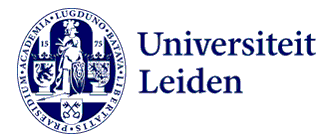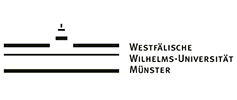Is The Constitutional And Legal Recognition Of Traditional Community Laws Within The Multicultural Country Of Indonesia A Genuine Or Pseudo Recognition?
DOI:
https://doi.org/10.31078/consrev123Keywords:
Traditional Community Laws, Recognition, MulticulturalAbstract
Indonesia is well known amongst Southeast Asian countries for it multi- cultural identity in terms of ethnicity, religion, race and social stratification. Indonesia embodies its motto of Unity in Diversity, which refers to the culturally rich configuration of Indonesia, containing cultural capital and cultural power. However, cultural diversity also yields conflict due to inter-ethnic and inter- religious disputes that have the potential to generate social disintegration and even threaten the fragmentation of Indonesia as a Nation State. In the eyes of legal anthropologists, sources of conflict are often based on discriminatory policies expressed within the State’s law and legislation with regard to the recognition and protection of local communities across the country, namely ‘adat’ communities practising traditional, customary law, known as ‘adat’. Thus, State laws enacted and enforced by the Government tend to dominate and marginalise, even ignore the rights of the local communities, particularly regarding access to and control over natural resources, which is otherwise governed by the adat law of the region. This paper attempts to offer an answer to the fundamental question of whether the 1945 Constitution recognises and protects the traditional communities and their adat laws by employing a legal anthropological approach, with the purpose of obtaining a better understanding of development of State law in a multicultural Nation and looking towards a more just and equitable Indonesian State law.References
Allot, Anthony and R. Woodman Gordon (eds). 1975, People’s Law and State Law, Dodrecht-Holland: Foris Publication.
Abdurrachman, Sukri. 2004, Konflik Pertanahan di Era Reformasi: Hukum Negara, Hukum Adat dan Tuntutan Rakyat (Conflict of Land Tenure in Reformation Era: State Law, Adat Law and Claiming of the People), Jakarta: Pusat Penelitian Kemasyarakatan dan Kebudayaan LIPI.
Araf, Al and Awan Puryadi. 2002, Perebutan Kuasa Tanah (The Contest of Land Tenure and Control), Yogyakarta: Lappera Pustaka Utama.
Bachriadi, Dianto, Erpan Faryadi, dan Bonnie Setiawan (eds). 1997, Reformasi Agraria, Perubahan Politik, Sengketa, dan Agenda Pembaruan Agraria di Indonesia (Agrarian Reformation, Political Change, Conflicts and Agrarian Reform Agendas in Indonesia) , Jakarta KPA & Lembaga Penerbitan FE-UI.
Bachriadi, Dianto (1998), Sengketa Agraria dan Perlunya Menegakkan Lembaga Peradilan yang Independen (Agrarian Disputes and the Needed for Enforcing the Independently Agrarian Court), Bndung: Kertas Posisi KPA 002/1998, Konsorsium Pembaruan Agraria (KPA).
Barber, Charles Victor. 1989, “The State, The Environment, and Development:The Genesis and Transformation of Social Forestry Policy in New Order Indonesia”, Berkeley: Unpublished Doctoral Desertation University of California.
Black, Donald. 1984, Toward a General Theory of Social Control, New York: Academic Press.
--------- and Maureen Mileski (eds). 1973, The Social Organization of Law, New York: Seminar Press.
Benedanto, Pax. 1999, Menggugat Ekspansi Industri Pertambangan di Indonesia (Reclaiming over Maining Industrial Expantion in Indonesia) , Bogor: Pustaka Latin, Bogor.
Bodley, John H. 1982, Victims of Progress, California: Mayfield Publishing Company.
Bohannan, Paul (ed.), 1967. Law and Warfare, Studies in the Anthropology of Conflict, Austin and London: University of Texas Press.
Cotterel, Roger. 1995, Law’s Community, Legal Theory in Sociological Perspective, Oxford: The Clarendon Press.
Dove, Michael R. 1981, Peranan Kebudayaan Tradisional Indonesia dalam Modernisasi (The Role of Traditional Culture in Modern Indonesia), Yayasan Obor Indonesia, Jakarta
Friedman, Lawrence M. 1975, The Legal System, A Social Science Perspective, New York: Russell Sage Foundation.
Griffiths, John. 1986, What is Legal Pluralism ?, in Journal of Legal Pluralism and Unofficial Law No. 24/1986, The Foundation for Journal of Legal Pluralism, pp. 1-56
Harman, Benny K. (1995), Pluralisme Hukum Pertanahan dan Kumpulan Kasus Tanah (Pluralism in Indonesian Land Law and Compilation Land Tenure Cases), Jakarta: YLBHI.
Hart, H.L.A. 1960, The Concept of Law, Oxford: Oxford University Press.
Hatfindo, 2004. “Final Report of the Study on Capacity Building for Decentralized Natural Resources Management”, ADB TA 3523-INO, West Vancouver Canada: Hatfield Consultants Ltd.
Hoebel, E. Adamson. 1954, The Law of Primitive Man, Cambridge, Massachussetts. Hooker, M.B. 1978, Adat Law in Modern Indonesia, Oxford University Press, USA.
Korten, D.C, “Community Based Resource Management”, in Korten D.C. (Ed), Community Management: Asian Experience and Perspectives, Kumarian Press.
Llewellyn, Karl and E. Adamson Hoebel. 1941. The Law of Primitive Man, New York: Atheneum.
Moniaga, Sandra. 1999, “Toward Community-based Forestry and Recognition of Adat Property Rights in the Outer Islands of Indonesia”, Unpublished paper.
Moore, Sally F. 1978, Law as Progress, An Anthropological Approach, London: Routhledge & Kegan Paul Ltd.
Nader, Laura and Harry F. Tood Jr. (eds.). 1978. The Disputing Process-Law in Ten Societies, New York: Columbia University Press.
Nonet, Philippe and Philip Selznick. 1978. Law and Society in Transition, Toward Responsive Law, New York: Harper Colophon Books.
Nurjaya, I Nyoman (ed). 1993, Politik Hukum Pengusahaan Hutan di Indonesia (Politic of Law on Forestry Management of Indonesia), Jakarta: Wahana Lingkungan Hidup Indonesia (WALHI).
Nurjaya, I Nyoman. 2005, Magersari: Dinamika Komunitas Petani-Pekerja Hutan dalam Perspektif Antropologi Hukum (Magersari: The Community Dinamic of Forest Labor and Peasant in the Perspective of Legal Anthropology) , Malang: UM Press.
Nurjaya, I Nyoman. 2007, Pengelolaan Sumber Daya Alam dalam Perspektif Antropologi Hukum (Natural Resources Management in Legal Anthropology Perspective), Jakarta: Prestasi Pustaka Publisher.
Nurjaya, I Nyoman. 2011. “Adat Community Lands Right As Defined Within the State Agrarian Law of Indonesia: Is It A Genuine or Pseudo Legal Recognition?”, in The US-China Law Review Volume 8, Number 4, April 2011, Illinois-USA: David Publishing Company.
Nurjaya, I Nyoman. 2012. “State Law in Multicultural Country of Indonesia: Toward A Just and Equitable State in Legal Anthropology Point of View”, in the US-China Law Review Volume 9, Number 1, Febroary 2012, Illinois-USA: David Publishing Company.
Nurjaya, I Nyoman. 2014. “Progressive Environmental Law of Indonesia: Global Principles of Stockholm and Rio Declations As Defined Within The 2009 Act on Human Environment Protection and Management”, in The US-China Law Review Volume 11, Number 1, January 2014 (Serial Number 97), Illinois- USA: David Publishing Company, Illinois.
Peluso, Nancy L. 1992, Rich Forest, Poor People: Resource Control and Resistance in Java, University of California Press, USA.
Person, Gerard. 1991, “The Tension Between State Law and Local Culture”, Unpublished Paper.
Pospisil, Leopold. 1971, Anthropology of Law, A Comparative Theory, New York: Harper & Row Publisher.
Repetto, Robert and Malcolm Gillis. 1988, Public Policies and the Misuse of Forest Resources, New York: Cambridge University Press.
Suhendar, Endang dan Ifdal Kasim. 1996, Tanah sebagai Komoditi, Kajian Kritis atas Kebijakan Pertanahan Orde Baru (Land as Economic Commodity, Critical Study of Land Tenure Policy in the New Order Era), Jakarta: ELSAM.
Selznick, P. 1969, Law, Society, and Industrial Justice, New York: Transaction Books,.
Snyder, F.G. 1981, “Anthropology, Dispute Process and Law: A Critical Introduction”, dalam British Journal of Law and Society Vol. 8 No. 2 Winter, pp. 141 – 179.
Spradley, James P. and David W. McCurdy, Conformity and Conflict, Reading in Cultural Anthropology, Boston and Toronto: Little, Brown and Company.
Starr, June and Jane F. Collier. 1989, History and Power in The Study of Law, New Direction in Legal Anthropology, Ithaca and London: Cornel University Press.
Sumardjono, Maria S.W. 2008, Tanah dalam Perspektif Hak Ekonomi, sosial, dan Budaya (Land in the Perspective of Ecnomic, Social and Cultural Rights), Jakarta: Kompas Press.
Tamanaha, Brian. 1992, “The Folly of the Concept of Legal Pluralism”, paper presented at the International Congress the Commission on Folk Law and Legal Pluralism, Victoria University of Wellington, New Zealand.
Tjitradjaja, Iwan. 1993, “Differential Acess to Resources and Conflict Resolution an A Forest Consession in Irian Jaya”, in Ekonesia, A Journal of Indonesian Human Ecology Vol. 1 Mei 11993, pp. 58-69.
Wiradi, Gunawan. 2000, Reforma Agraria, Perjalanan Yang Belum Berakhir (The Unfinished Journey of Agrarian Reformation), Yogyakarta: Insist Press.
Abdurrachman, Sukri. 2004, Konflik Pertanahan di Era Reformasi: Hukum Negara, Hukum Adat dan Tuntutan Rakyat (Conflict of Land Tenure in Reformation Era: State Law, Adat Law and Claiming of the People), Jakarta: Pusat Penelitian Kemasyarakatan dan Kebudayaan LIPI.
Araf, Al and Awan Puryadi. 2002, Perebutan Kuasa Tanah (The Contest of Land Tenure and Control), Yogyakarta: Lappera Pustaka Utama.
Bachriadi, Dianto, Erpan Faryadi, dan Bonnie Setiawan (eds). 1997, Reformasi Agraria, Perubahan Politik, Sengketa, dan Agenda Pembaruan Agraria di Indonesia (Agrarian Reformation, Political Change, Conflicts and Agrarian Reform Agendas in Indonesia) , Jakarta KPA & Lembaga Penerbitan FE-UI.
Bachriadi, Dianto (1998), Sengketa Agraria dan Perlunya Menegakkan Lembaga Peradilan yang Independen (Agrarian Disputes and the Needed for Enforcing the Independently Agrarian Court), Bndung: Kertas Posisi KPA 002/1998, Konsorsium Pembaruan Agraria (KPA).
Barber, Charles Victor. 1989, “The State, The Environment, and Development:The Genesis and Transformation of Social Forestry Policy in New Order Indonesia”, Berkeley: Unpublished Doctoral Desertation University of California.
Black, Donald. 1984, Toward a General Theory of Social Control, New York: Academic Press.
--------- and Maureen Mileski (eds). 1973, The Social Organization of Law, New York: Seminar Press.
Benedanto, Pax. 1999, Menggugat Ekspansi Industri Pertambangan di Indonesia (Reclaiming over Maining Industrial Expantion in Indonesia) , Bogor: Pustaka Latin, Bogor.
Bodley, John H. 1982, Victims of Progress, California: Mayfield Publishing Company.
Bohannan, Paul (ed.), 1967. Law and Warfare, Studies in the Anthropology of Conflict, Austin and London: University of Texas Press.
Cotterel, Roger. 1995, Law’s Community, Legal Theory in Sociological Perspective, Oxford: The Clarendon Press.
Dove, Michael R. 1981, Peranan Kebudayaan Tradisional Indonesia dalam Modernisasi (The Role of Traditional Culture in Modern Indonesia), Yayasan Obor Indonesia, Jakarta
Friedman, Lawrence M. 1975, The Legal System, A Social Science Perspective, New York: Russell Sage Foundation.
Griffiths, John. 1986, What is Legal Pluralism ?, in Journal of Legal Pluralism and Unofficial Law No. 24/1986, The Foundation for Journal of Legal Pluralism, pp. 1-56
Harman, Benny K. (1995), Pluralisme Hukum Pertanahan dan Kumpulan Kasus Tanah (Pluralism in Indonesian Land Law and Compilation Land Tenure Cases), Jakarta: YLBHI.
Hart, H.L.A. 1960, The Concept of Law, Oxford: Oxford University Press.
Hatfindo, 2004. “Final Report of the Study on Capacity Building for Decentralized Natural Resources Management”, ADB TA 3523-INO, West Vancouver Canada: Hatfield Consultants Ltd.
Hoebel, E. Adamson. 1954, The Law of Primitive Man, Cambridge, Massachussetts. Hooker, M.B. 1978, Adat Law in Modern Indonesia, Oxford University Press, USA.
Korten, D.C, “Community Based Resource Management”, in Korten D.C. (Ed), Community Management: Asian Experience and Perspectives, Kumarian Press.
Llewellyn, Karl and E. Adamson Hoebel. 1941. The Law of Primitive Man, New York: Atheneum.
Moniaga, Sandra. 1999, “Toward Community-based Forestry and Recognition of Adat Property Rights in the Outer Islands of Indonesia”, Unpublished paper.
Moore, Sally F. 1978, Law as Progress, An Anthropological Approach, London: Routhledge & Kegan Paul Ltd.
Nader, Laura and Harry F. Tood Jr. (eds.). 1978. The Disputing Process-Law in Ten Societies, New York: Columbia University Press.
Nonet, Philippe and Philip Selznick. 1978. Law and Society in Transition, Toward Responsive Law, New York: Harper Colophon Books.
Nurjaya, I Nyoman (ed). 1993, Politik Hukum Pengusahaan Hutan di Indonesia (Politic of Law on Forestry Management of Indonesia), Jakarta: Wahana Lingkungan Hidup Indonesia (WALHI).
Nurjaya, I Nyoman. 2005, Magersari: Dinamika Komunitas Petani-Pekerja Hutan dalam Perspektif Antropologi Hukum (Magersari: The Community Dinamic of Forest Labor and Peasant in the Perspective of Legal Anthropology) , Malang: UM Press.
Nurjaya, I Nyoman. 2007, Pengelolaan Sumber Daya Alam dalam Perspektif Antropologi Hukum (Natural Resources Management in Legal Anthropology Perspective), Jakarta: Prestasi Pustaka Publisher.
Nurjaya, I Nyoman. 2011. “Adat Community Lands Right As Defined Within the State Agrarian Law of Indonesia: Is It A Genuine or Pseudo Legal Recognition?”, in The US-China Law Review Volume 8, Number 4, April 2011, Illinois-USA: David Publishing Company.
Nurjaya, I Nyoman. 2012. “State Law in Multicultural Country of Indonesia: Toward A Just and Equitable State in Legal Anthropology Point of View”, in the US-China Law Review Volume 9, Number 1, Febroary 2012, Illinois-USA: David Publishing Company.
Nurjaya, I Nyoman. 2014. “Progressive Environmental Law of Indonesia: Global Principles of Stockholm and Rio Declations As Defined Within The 2009 Act on Human Environment Protection and Management”, in The US-China Law Review Volume 11, Number 1, January 2014 (Serial Number 97), Illinois- USA: David Publishing Company, Illinois.
Peluso, Nancy L. 1992, Rich Forest, Poor People: Resource Control and Resistance in Java, University of California Press, USA.
Person, Gerard. 1991, “The Tension Between State Law and Local Culture”, Unpublished Paper.
Pospisil, Leopold. 1971, Anthropology of Law, A Comparative Theory, New York: Harper & Row Publisher.
Repetto, Robert and Malcolm Gillis. 1988, Public Policies and the Misuse of Forest Resources, New York: Cambridge University Press.
Suhendar, Endang dan Ifdal Kasim. 1996, Tanah sebagai Komoditi, Kajian Kritis atas Kebijakan Pertanahan Orde Baru (Land as Economic Commodity, Critical Study of Land Tenure Policy in the New Order Era), Jakarta: ELSAM.
Selznick, P. 1969, Law, Society, and Industrial Justice, New York: Transaction Books,.
Snyder, F.G. 1981, “Anthropology, Dispute Process and Law: A Critical Introduction”, dalam British Journal of Law and Society Vol. 8 No. 2 Winter, pp. 141 – 179.
Spradley, James P. and David W. McCurdy, Conformity and Conflict, Reading in Cultural Anthropology, Boston and Toronto: Little, Brown and Company.
Starr, June and Jane F. Collier. 1989, History and Power in The Study of Law, New Direction in Legal Anthropology, Ithaca and London: Cornel University Press.
Sumardjono, Maria S.W. 2008, Tanah dalam Perspektif Hak Ekonomi, sosial, dan Budaya (Land in the Perspective of Ecnomic, Social and Cultural Rights), Jakarta: Kompas Press.
Tamanaha, Brian. 1992, “The Folly of the Concept of Legal Pluralism”, paper presented at the International Congress the Commission on Folk Law and Legal Pluralism, Victoria University of Wellington, New Zealand.
Tjitradjaja, Iwan. 1993, “Differential Acess to Resources and Conflict Resolution an A Forest Consession in Irian Jaya”, in Ekonesia, A Journal of Indonesian Human Ecology Vol. 1 Mei 11993, pp. 58-69.
Wiradi, Gunawan. 2000, Reforma Agraria, Perjalanan Yang Belum Berakhir (The Unfinished Journey of Agrarian Reformation), Yogyakarta: Insist Press.
Downloads
Published
2016-03-28
How to Cite
Nurjaya, I. N. (2016). Is The Constitutional And Legal Recognition Of Traditional Community Laws Within The Multicultural Country Of Indonesia A Genuine Or Pseudo Recognition?. Constitutional Review, 1(2), 49–68. https://doi.org/10.31078/consrev123
Issue
Section
Articles
































































